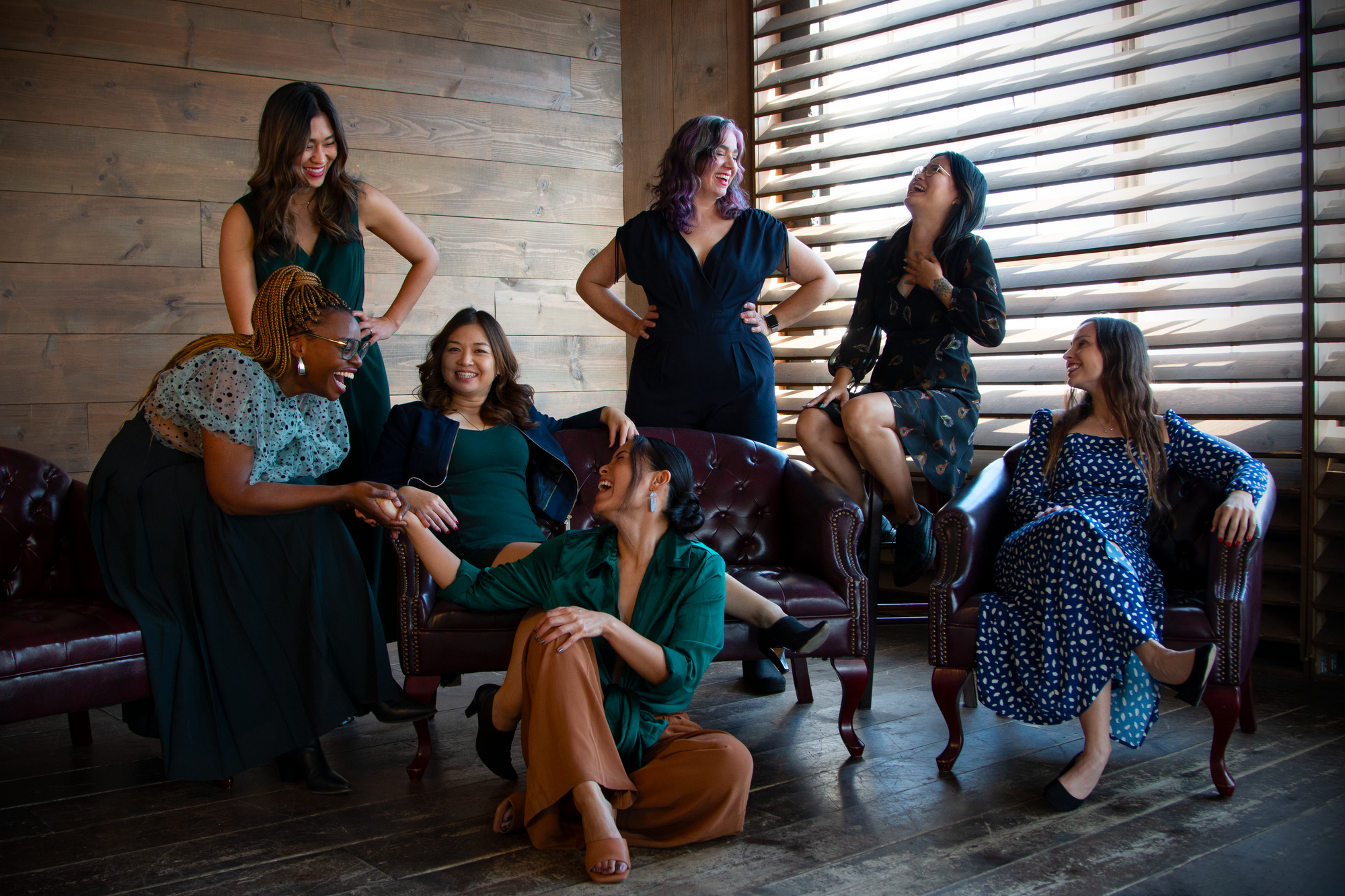
In Their Own Words - Women Finding Their Place as Directors
April 2022, a diverse group of women took up the mantel to collectively film and begin raising pre-production funding on SeedandSpark. Their film, Through The Blinds, is an anthology of stories from decades of women living in the same house, up until the present day. Their goal of beginning this project during the pandemic was simple—emerging directors need creative companionship and support to make longer feature pieces. And who better to provide support than one another?
In a world where female directors are scarce, each award nomination for a woman director is a victory that feels like another climb to recognize female talent. This sisterhood and creative collective provides more momentum for all of them to make it to the mountaintop. And to do it together.
Here are some of their experiences becoming and being filmmakers, in their own words—in hopes to inspire more women to take the place where they belong, as film directors.
Sylvia Ray
Sylvia Ray is an award-winning Chicana/Korean American filmmaker who focuses on telling stories about characters who overcome fears and feelings of unworthiness while navigating the humor of the human experience.
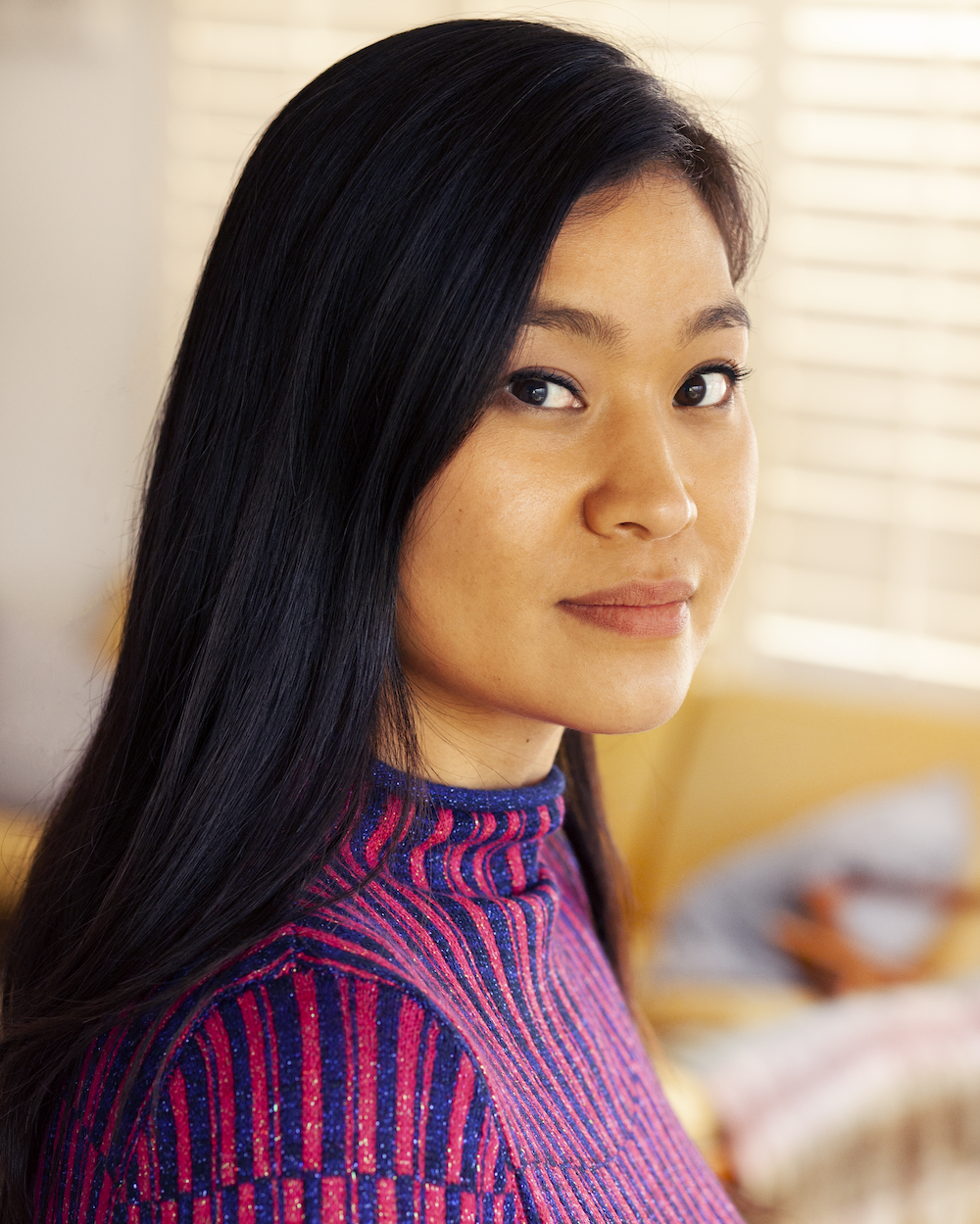
“When I first considered working in the film industry, a mentor asked me if he could direct a short film I wrote. I had zero experience. However, I knew that I needed to take a chance on myself and go for it even though I may fail; even though I was scared. I wanted to see more women like me directing movies that I love. Ultimately, I told him no and found myself in the director’s chair not long after that. That’s when I found my spark for directing, and I’ve never looked back and never will.
"Up till that point, I lived my life in the background. A hidden creative, who loved everything about art and film but with no courage to express herself. Riskless. A part of the ensemble. After finding my love for directing, I discovered that I had been suppressing my creativity since childhood. Choosing to call myself a director was the first step, and then from there, I’d learn as I go. From that day forth, I've learned to be seen. I’ve learned to be rejected. I’ve learned how to be a filmmaker.
"The stories I’m drawn to are stories about the underdog who overcomes their fears and feelings of unworthiness but always with a bit of levity. Part of my mission is to highlight women of color and provide spaces where their stories and their work could be seen. I’ll never forget when my lead actresses for my film A Period Piece, Selena Castro and Emily Trujillo, came to me with thanks and told me that these roles were their first time being the stars. I told them that they are stars and they deserve to be seen.
"In the beginning, the hustle can be all-consuming. But as I settled into this vocation, I’ve leaned into building friendships and collaborations. I try to always find joy in each experience. And, occasionally, a friend or even a complete stranger will feel seen by my work, which is everything.”
Jessica Liu
Jessica Liu’s work combines dream-like states with mundane realities. She enjoys bringing bits of dark humor and magical realism to grounded stories; juxtaposing the perverse with the heartwarming.
“I remember starting my first internship after college. It was focused on helping young adults strengthen their pathways in film and digital media. I was assigned to be a director for a commercial with a client through the program. As someone who grew up reserved and only showed my true self to my closest friends, it was terrifying of what I thought a director needed to be—the guy who shouts action through a foghorn (I still had a lot to learn then, LOL)—but as I worked on the vision of the piece, I found a new light.
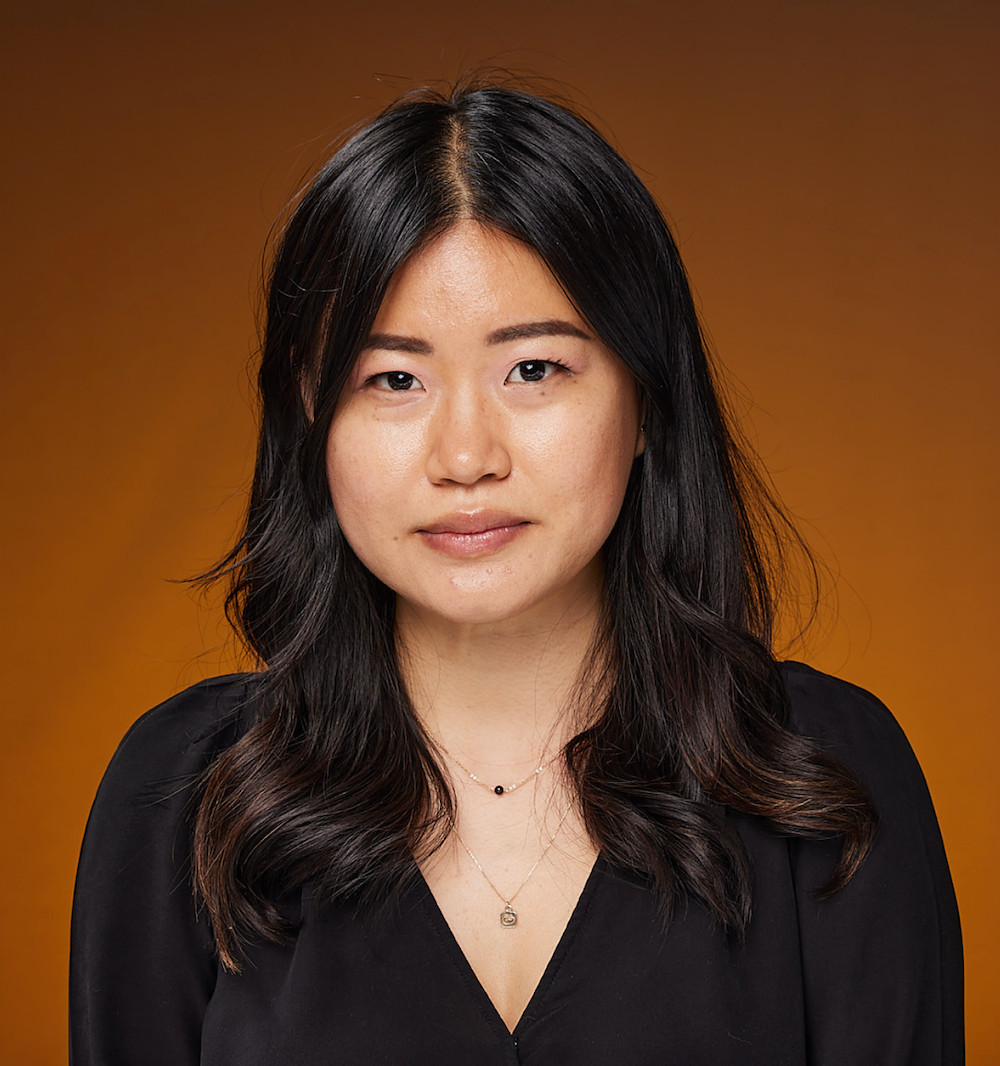
"As an avid reader who consumed literary fiction rapidly, story and character study have always been fascinating to me. I spent time intimately getting to know the talent I worked with and found joy in the collaborative process. Learning that the observational, unconventional, quieter parts of myself that I didn’t think fit into the mold of what it meant to be a director were welcomed was eye-opening.
"After trying my hand in post-production for a few years while directing my own projects, my passion became more and more clear. Finding a connection with my team and audience has always been one of the highlights of filmmaking. The more personal and exciting the project feels, the more it seems to attract a like-minded community. The fear I once felt, I’ve now recognized as a possibility. I think if something gets a visceral reaction out of you there is something deeper to explore. On the flip side of the negative is the ‘what if?' I think directing has been a beautiful path to leaning into expressing my true self and connecting with others.”
Destinee Stewart
Destinee is a director, writer, producer, and actor known for Well Spoken (a Vimeo Staff Pick), Bagels and Coffee, Lifebook Hackers, and The Truth of Us. She is currently in development on a doc series focusing on the lives of Black women.
“I don't remember much from my childhood outside of Labyrinth, playing nighttime tag with all the neighborhood kids, and my daydreams ... oh boy, did I live in my daydreams!
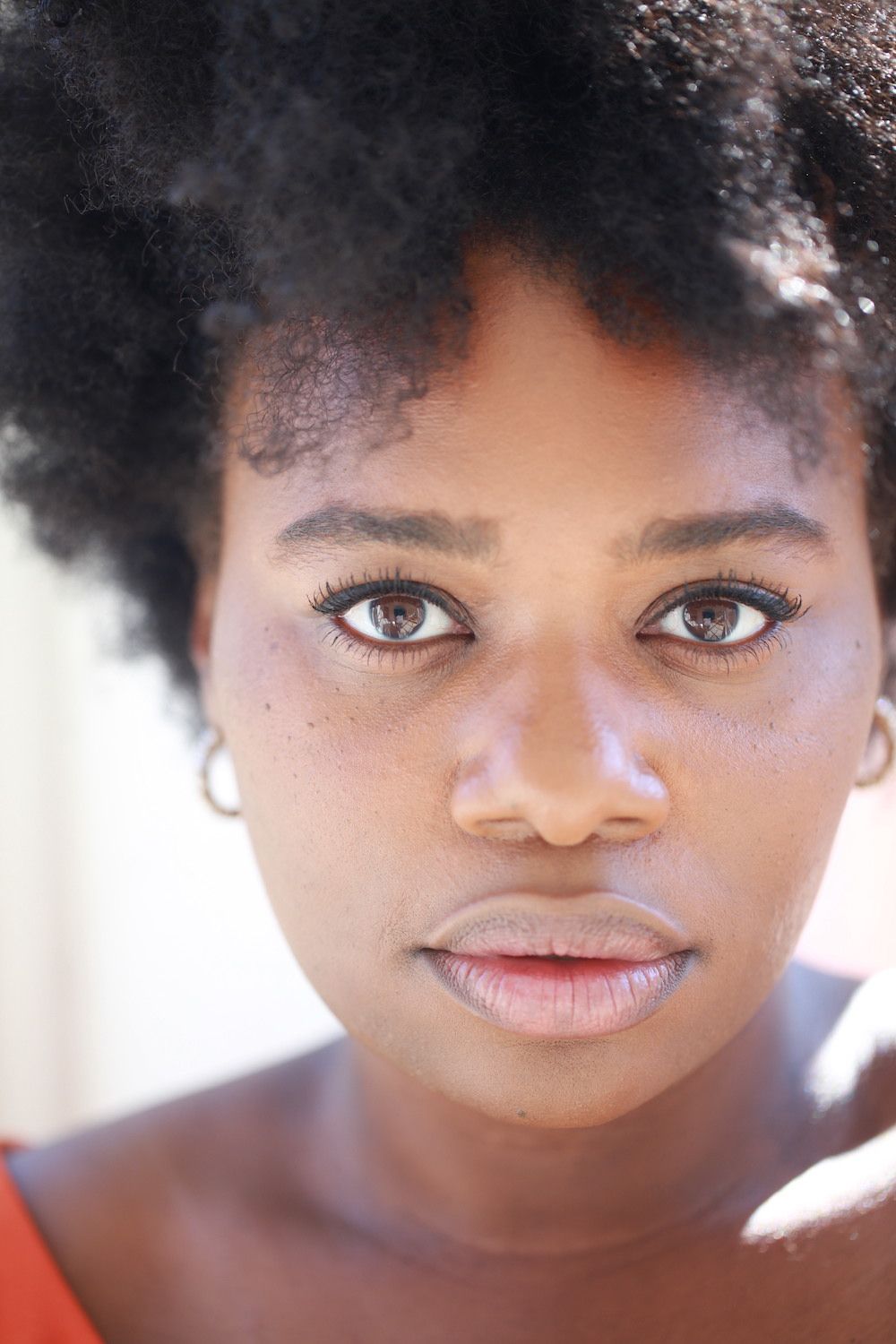
"As many told me my whole life, 'Stop living in the clouds, Destinee.' And so, I would try. I tried so hard I fooled myself into an accounting degree and a corporate career I never could fit into. Growing up as I did, security was heavily pushed. You had to go to certain schools, have a certain major, have a certain look. You had to play the game being a Black woman if you wanted to make it, but what happens when it’s not the one your soul needs?
"You eventually break down. I had my first quarter-life crisis at 24. Instead of running away like I wanted to, I walked into my first acting class which shortly led me to truly honoring that little girl who used to love to daydream so much, and I stepped into filmmaking. The whole process frees me and allows me the space to dream as big as I want. I give myself permission to use all of my femininity, all of my life experiences, and most magical, all of my imagination.
"I know my younger self would be so proud of me living in the clouds, and I must say, it's incredibly lovely up here.”
T.L. Quach
T. L. Quach is an Asian American Writer-Director who focuses on Psychological Thriller films, emphasizing themes about women's fears. Drawing inspiration from Hitchcock and Asian Cinema, she hopes to diversify and update the Thriller lens with a Female POC perspective.
“I embrace the world with visuals, and it’s probably why I am a filmmaker. Though born in America, I am a child of refugees where my family spoke many different languages. They weren’t the best communicators as they only knew enough to survive and get by. So, I watched: I watched them and their emotions while speaking words that are gibberish to me, I watched TV and learned the most ridiculous things, I watched the beautiful and dark nature that’s in my backyard.

"I was afraid to be an artist as it was something my community frowned upon. I remember writing a book under the sheets with a flashlight on it when I was 12, as if it was a dirty thing to do (haha). My imagination was too big, and I had to do something about it. I thought maybe I could at least work in NASA. It was then when I went to watch About Schmidt with my brother in theaters, I realized the power a film can bring. I remember tearing up while watching the ending [SPOILER] when Jack Nicholson sees a child’s drawing. As much as Space and Math are cool, I wanted to connect with others with visual emotions—another medium that transcends through languages.
"In college, I grew to love psychological thrillers. I used to be very scared of those types of films, especially those that lean into horror, but I felt they make me grow into a better and wiser person. Psychological thrillers can be a confrontational platform that challenges the status quo without holding anything back which leaves the audience with something to think about, and maybe even change the way they view things. On top of that, they’re just darn fun, messing with everybody’s emotions.
"Since then, I never really looked back and knew specifically that I wanted to write and direct psychological thrillers. Getting there was a challenge as it was a huge learning curve I got to go through. From UC Berkeley alum to working on the streets of New York City as a production assistant. Navigating the industry was a huge endeavor. Clearly there’s always a financial gap in creating my films but the biggest was the cultural bias that involved my race, age, gender, and class. I felt stuck in this singular expectation, glass ceilings and walls all around, and I just couldn’t fit in. Though I had many supportive friends in New York City, it just wasn’t enough to be taken seriously by the above-the-line folks.
"Meeting my directing partners was probably one of the best things that happened to me in L.A. We are all from very different backgrounds with very different personalities; however, we all experienced our own boxes that society has pressed upon us, and we are making space for all of us to thrive. I really can’t wait for us to share our film with the world. As much as Space and Math are cool, the power of bringing life to oppressed voices, particularly women from underrepresented communities, is also pretty darn cool.”
Rebecca Louisell
Rebecca Louisell (she/her & they/them) is a queer-identified writer and director whose mission is to make media that matters and entertains—focused on telling stories coming out of underrepresented groups in our society.
“As a kid, I was super into arts of all kinds. I was shy and read a lot, wrote poetry, painted, etc. In 6th grade, I made a video with a friend for a class project where we had a food fight. We had to bring all the props and figure out how to film it, and I think we even edited the VHS tape somehow. It was really fun and also liberating!
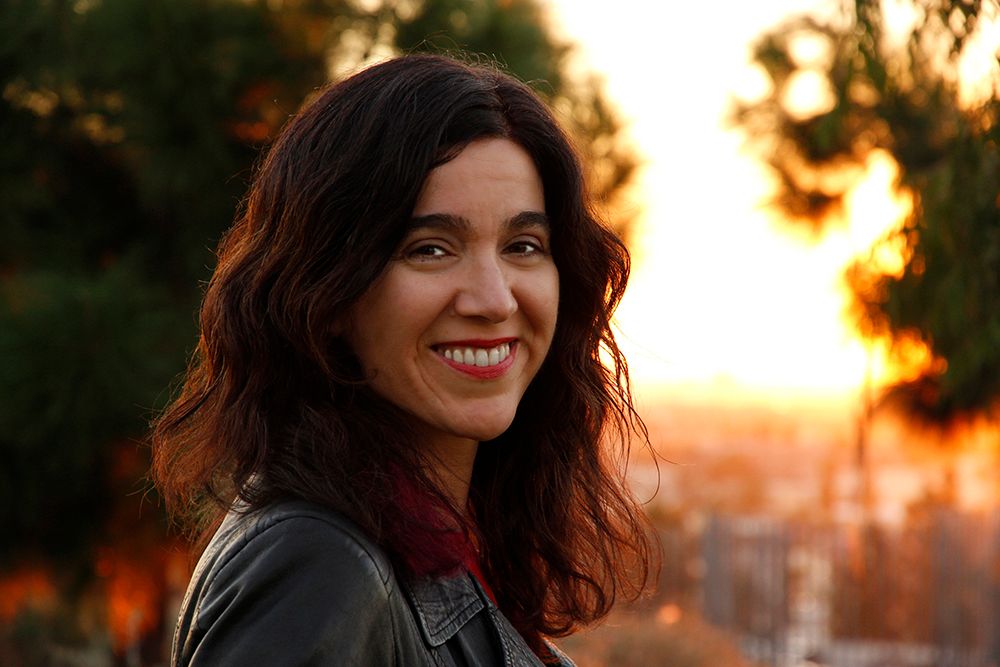
"I made my next film in college on Hi8 and I don’t remember what it was about, but I do remember thinking that I loved making it and maybe this would be something I would want to come back and do later. I was young and idealistic and wanted to save the world, and I didn’t think I could do it through art. I joined AmeriCorps and went into working with young people in community-based nonprofits.
"Working in nonprofits had a lot of joys. I loved meeting people, learning to facilitate, learning to structure programs, learning to raise money. But I was also getting burned out. Then I developed a chronic health condition (fibromyalgia). My job at the time was leading youth on bike trips. I had to stop riding a bike. It lead to an identity crisis, and I felt a lot of grief. Through that process, I realized that the time to get back to making art was now. Once I learned to manage my condition better, I began taking film classes at a local community college. The first time I saw my short film on the screen with a live audience in a theater and heard the reactions, I was bit by the bug, and I had to learn everything I could! I applied to film schools and got into USC.
"Film school isn’t for everyone, for one thing, it’s expensive and there is no guarantee you will get a high-paying job right out of school. It was part of my path in part because it was my second career, and I wanted to get started on it as soon as I could. I decided that going to school full time would accelerate that process, which I think was the case.
"Filmmaking combines everything I love and am good at. Visual art, writing, music, working with people, raising money, pulling a team together, and creating community. With this project, we are taking our own crack at changing, if not the world, at least the media landscape. By taking ourselves seriously as creatives, I hope we can help crack open opportunities for others to be able to step into their roles as creative leaders in their own right.”
Through the Blinds is crowdfunding on Seed & Spark until March 23rd—you can make a pledge or follow their campaign here.
*Feature photo by Chara Andrews: (L-R) Destinee Stewart, Sylvia Ray, T.L. Quach, Kristine Gerolaga, Rebecca Louisell, Jessica Liu, Luisa Novo

